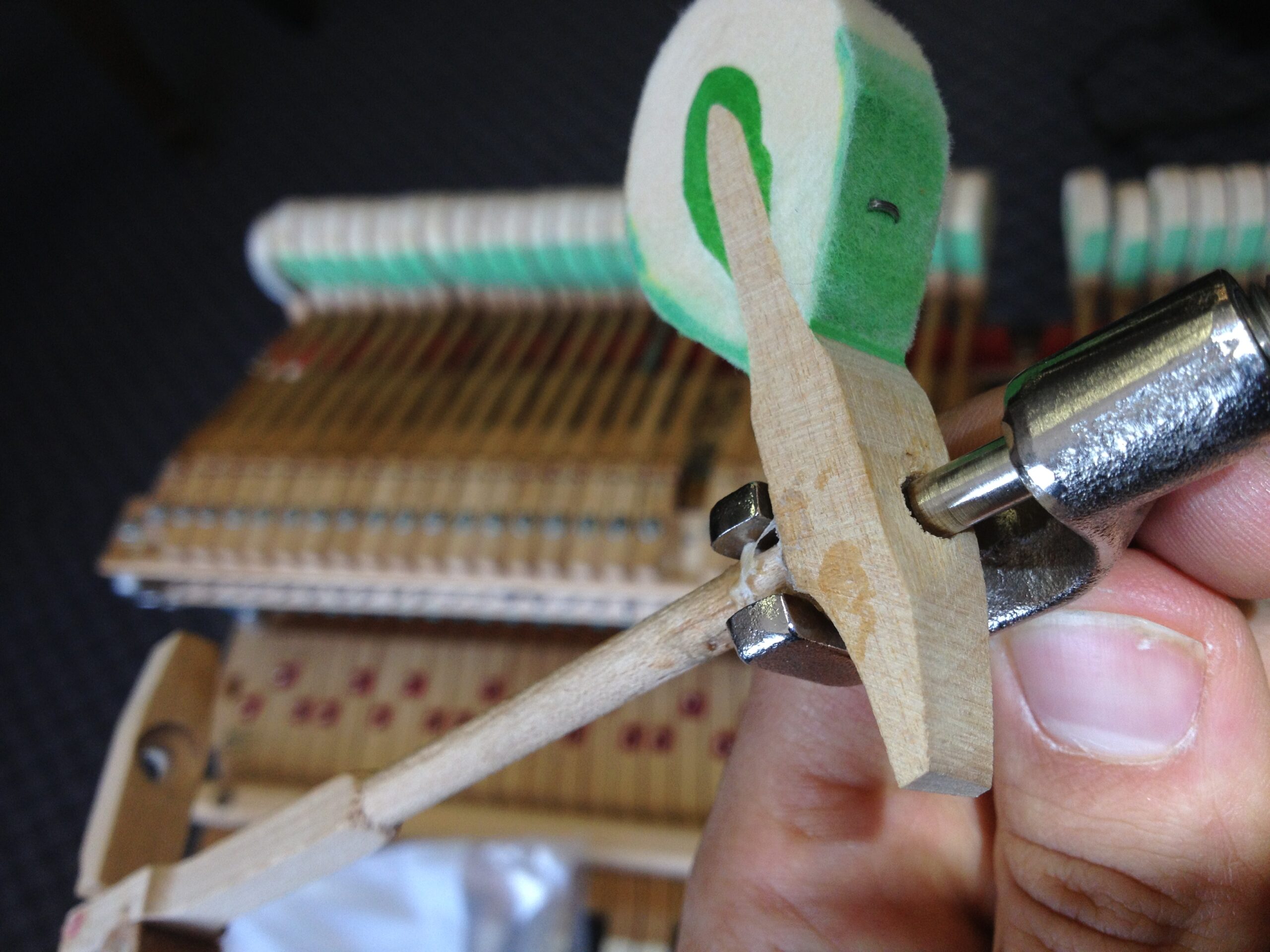I’m an authorized servicer for Yamaha, Roland, and Casio, a certified Dampp‑Chaser installer, and I provide a variety of services for keyboard instruments here in Southern Maine. I also help owners nationwide with older Disklaviers, USB/floppy conversions, and other technical issues on digital and hybrid instruments.
Piano Tuning
I tune pianos throughout Southern Maine. I have a page dedicated to answering common piano tuning questions, or you can reach out to schedule an appointment.
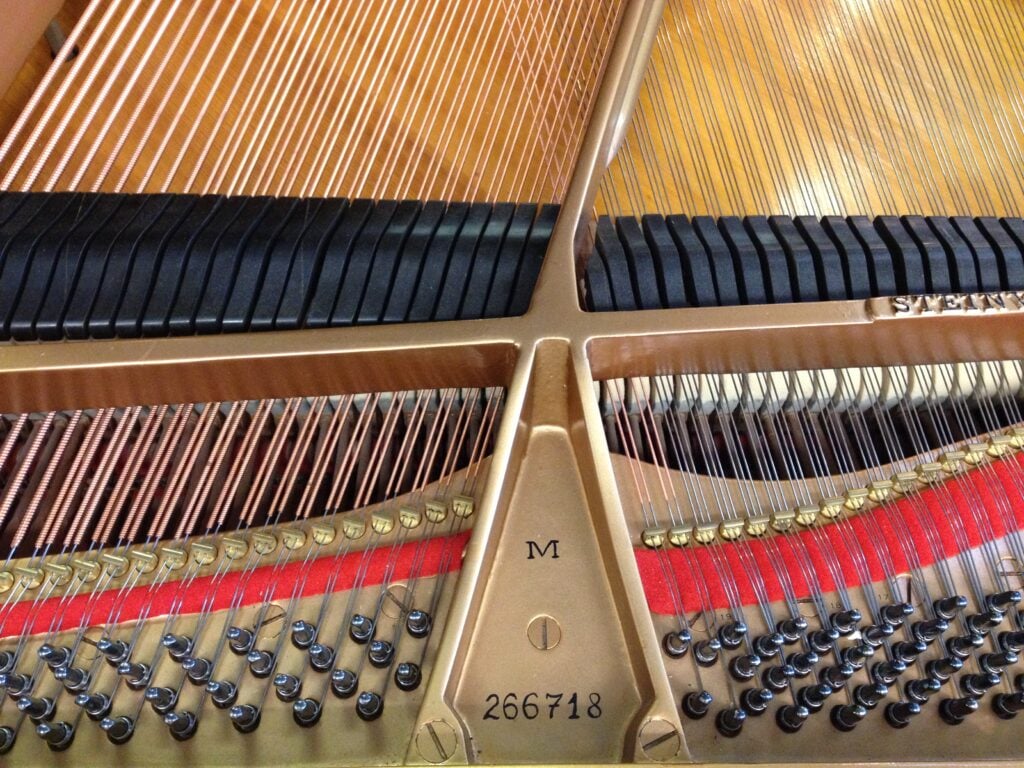
Disklavier, Digital, and Hybrid Piano Repair
I offer digital piano repair and provide authorized service for Yamaha, Roland, and Casio. And I particularly enjoy finding ways to offer new life to older instruments with limited support!
Yamaha
I provide Yamaha Authorized Service to Southern Maine. I can assist with repairs and warranty service. If you’re not in Southern Maine, you can use Yamaha’s Servicer Locator tool to find a technician near you. I work on Yamaha keyboards, digital pianos, hybrid pianos, and Disklaviers.
Casio
I’m a Casio servicer, and can assist with both repairs and warranty service. Please see Casio’s Keyboard and Piano Service directory if you’re located outside of Southern Maine.
Roland
I’m also a Roland Service Center, and can offer assistance with both repairs and warranty service on their keyboards and digital pianos.
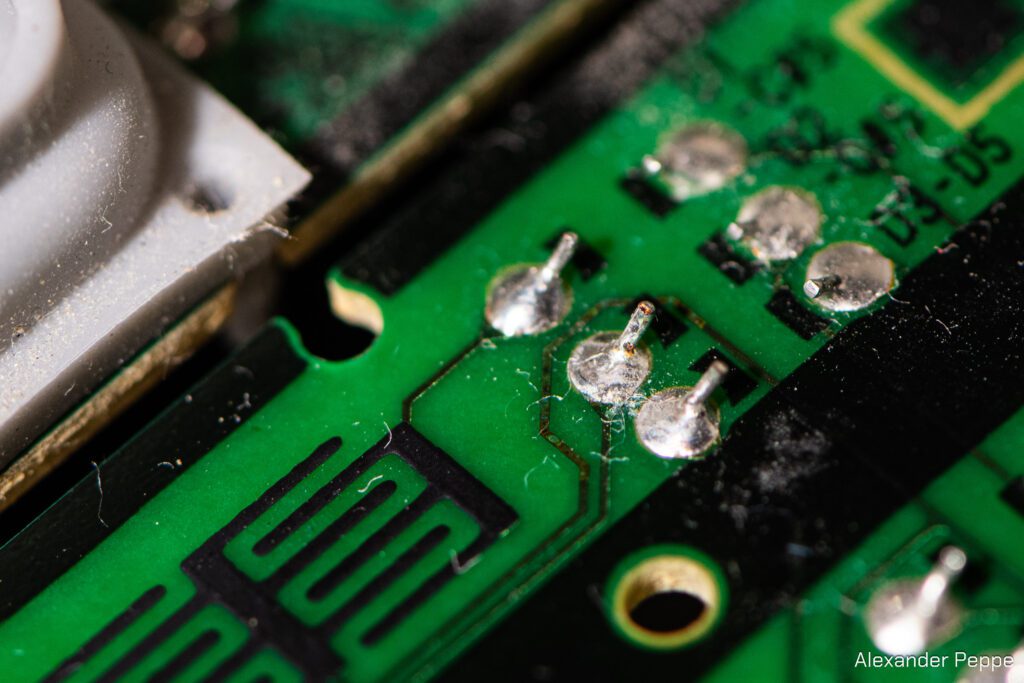
Online Store and Floppy Disk Transfer
I work with many older Disklavier systems, and can assist in upgrading or repairing your Disklavier. If you have an older Disklavier and are looking to upgrade, I’ve written several articles to assist. Additionally, I can transfer your old floppy disks to modern formats. If you have any specific questions about your Yamaha Disklavier, I’d love to discuss them! For customers, I can also transfer old cassettes and digitize VHS tapes.
Evaluation
I strongly recommend getting all used pianos evaluated before purchasing. It is very discouraging to get a piano—especially a “free” piano which still costs hundreds of dollars to move—only to discover that it is, in fact, not able to be tuned.
You can find the age of your piano by looking up your serial number online at Bluebook of Pianos. Although their website is dated, you’ll find many common makes and models. You will need your serial number and the piano’s make. The serial number is usually visible near the tuning pins (under the lid on an upright).
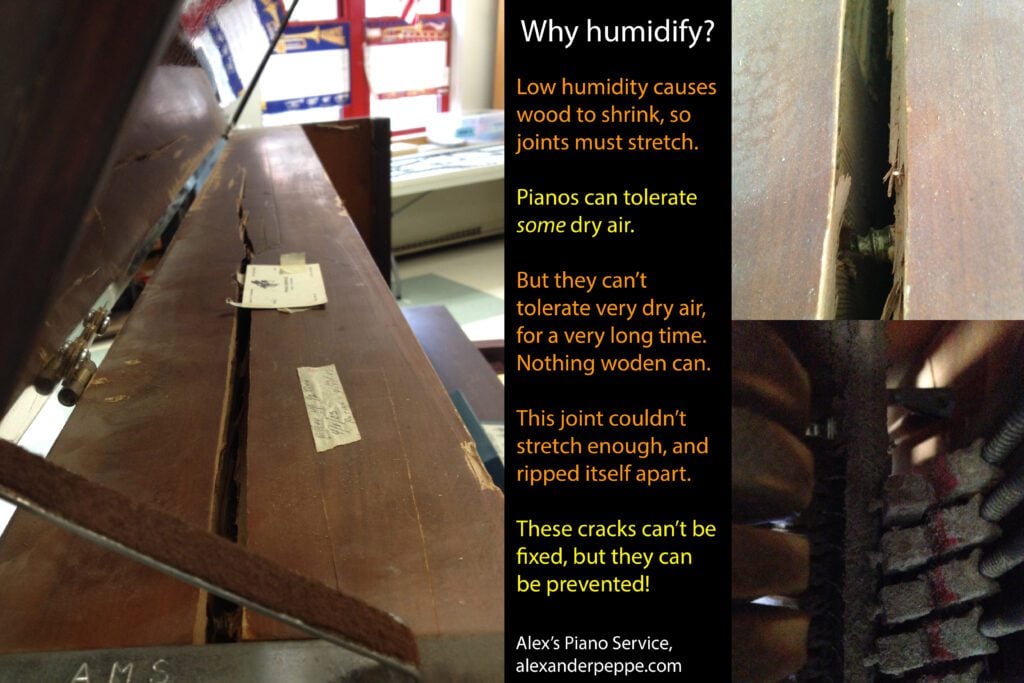
Appraisal
After evaluating a piano, I can give you a formal document with a monetary value. This is useful if you are selling a piano, or if you require documentation for insurance or tax purposes. I can also assess and provide a valuation for any damage to a piano.
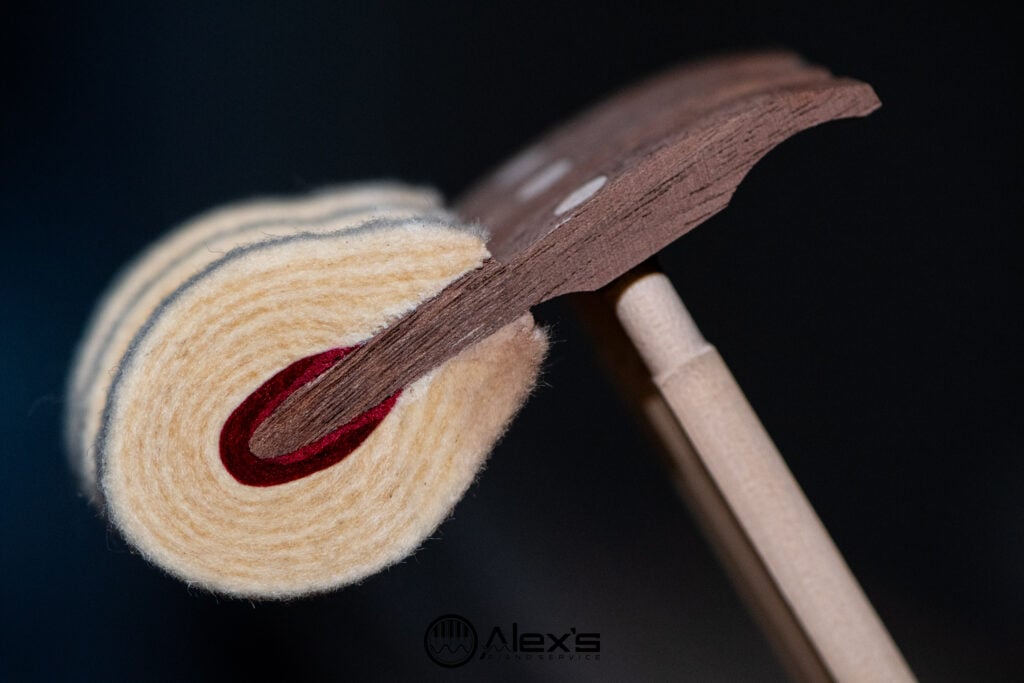
Regulation
As pianos age, they undergo many changes. Felt and cloth compact, wood moves and sometimes warps, and glue weakens. Over time, this affects both touch and tone.
Keys can stick or feel “slow.” They can have “lost motion,” which creates an unresponsive, gummy feeling. Keys can feel like they’re tight and “bounce,” or they can wiggle and feel loose. Sometimes they’re just visually uneven. And sometimes, misaligned hammers can strike adjacent notes. Often, certain keys make clicking, clacking, or squeaking sounds.
A degree of regulation is included with a standard tuning; however, if a piano requires a lot of regulation in multiple areas, or if the regulation actually requires more serious repairs, there may be additional costs.
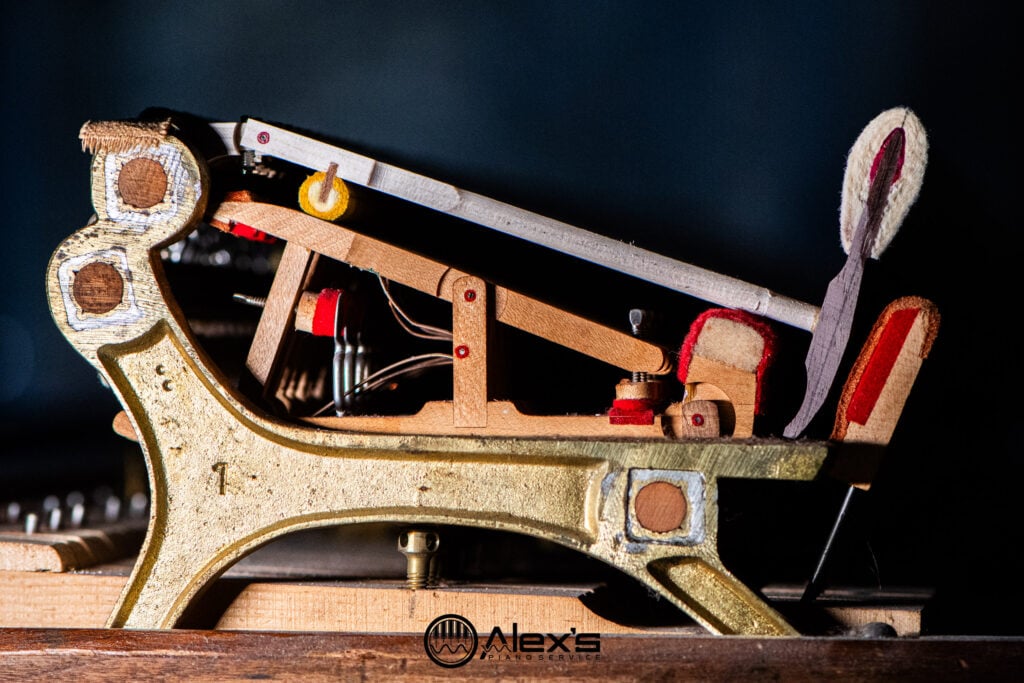
More Significant Repairs
Some piano issues require more than regulation. Pianos can emit mysterious buzzes. Pedals can stick, clank or not work. Strings can break. Keys can fail to play at all.
If the repair is quick and straightforward, it is often included in a basic tuning. Otherwise, more complicated or extensive repairs can be made at an hourly rate.
I refer major repairs that require a shop to piano rebuilders in the area. I do not refinish pianos. Refinishing is a woodworker’s craft. Some rebuilders do refinish pianos, but many do not and refer that business to local woodworkers.
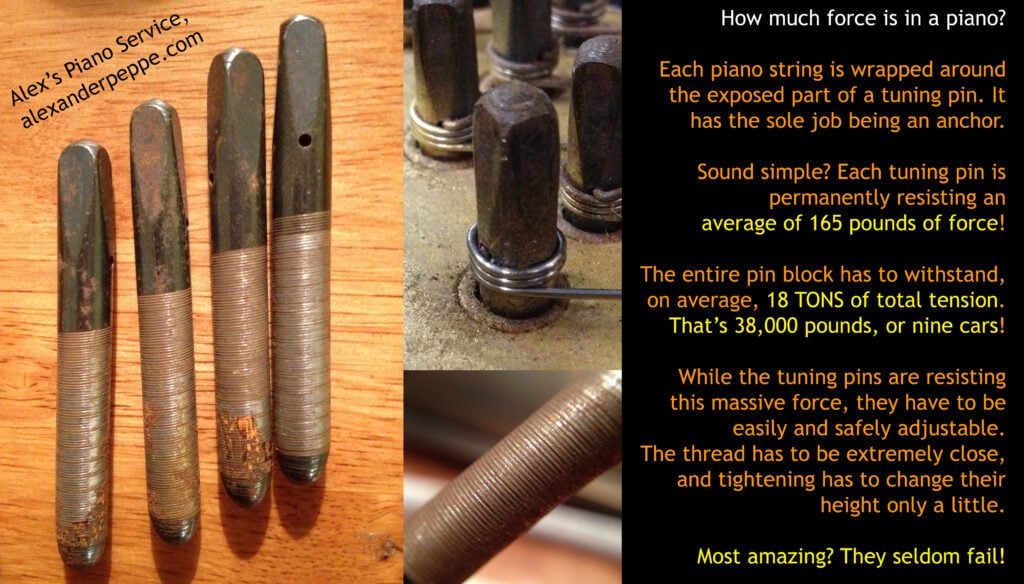
Dampp-Chaser Piano Life Saver System® Installation
In many spaces, it’s difficult to regulate humidity to the degree necessary to protect your piano. For some people, the time and effort required might be unreasonable, and in some settings it might not be possible. A Dampp-Chaser Piano Life Saver System® will protect your piano from both humid summers and dry winters. These systems are capable of responding rapidly to the drastic changes that are an almost daily occurrence here in Maine.
I maintain nearly 100 systems throughout the state. Every time I tune your piano, I’ll inspect the condition of the Dampp-Chaser wicks and replace them if necessary. I provide both the inspection and replacement as a complimentary part of my service.
See my Dampp-Chaser FAQ for more information, my guide on piano humidity for more on climate control in general, or the Price List for approximate prices.
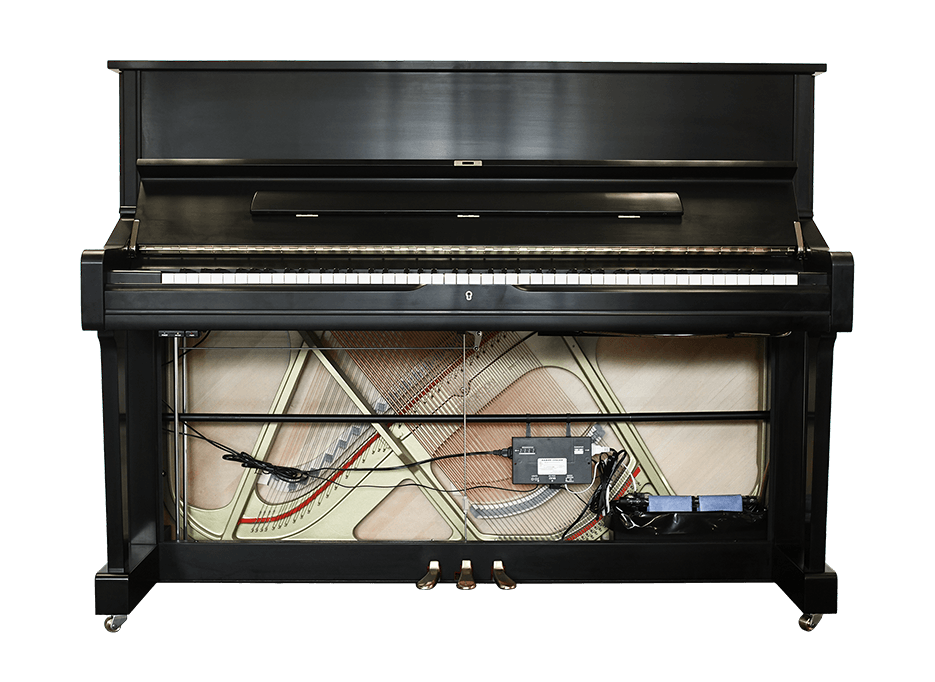
Voicing Hammers
Voicing refers to adjusting the tone of a piano by working directly with the hammers. Over time, hammer felt becomes compressed and grooved, leading to harsh or uneven sound. Technicians can soften hammers by needling the felt or harden them using special solutions to enhance brightness.
Individual notes that sound out of place can also be voiced to match the rest of the keyboard. Even rotating or reshaping the hammer slightly can change the tone by bringing a different part of the felt into contact with the strings. The goal of voicing is a balanced, pleasing sound across the entire piano.
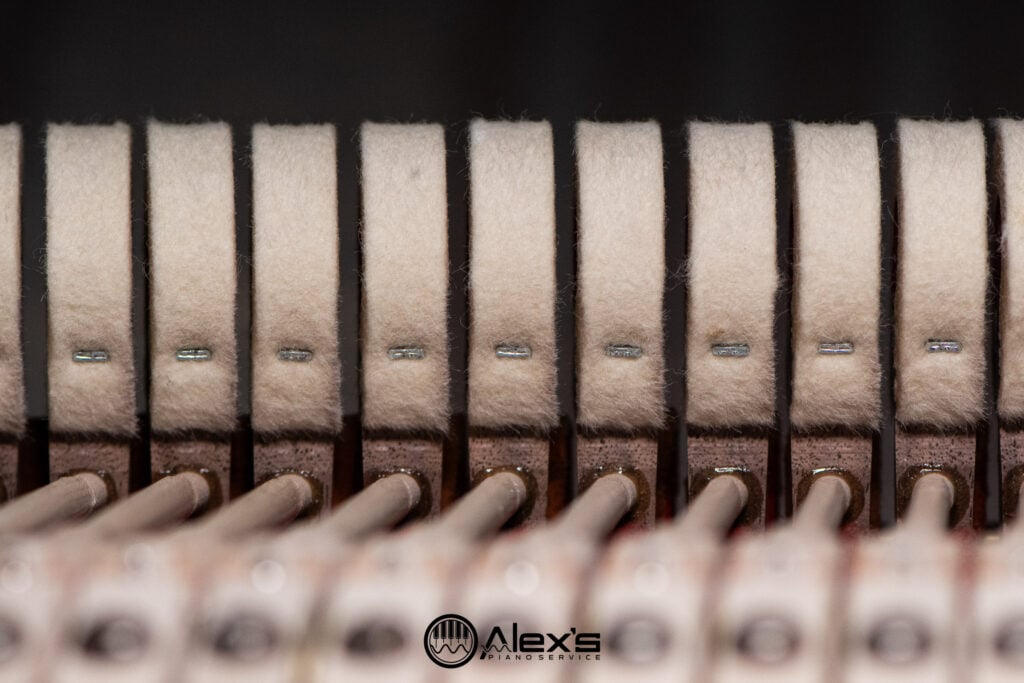
Cleaning
If a piano has been stored or has been exposed to very high humidity, smoke, or mice for a prolonged period, it may require cleaning for optimal performance. Dirt and mold can change the sound and feeling of a piano and cause keys to feel “sticky.” Generally, this includes vacuuming all components and using an air compressor to remove dirt from between and under the keys and inside the action. This is not for restoration, but for playability. Please see my piano cleaning guide for more information.
Accessories
I can order any parts and piano accessories for you and bring them to our tuning. For a full menu of available items, see the Schaff Piano Supply catalog.
